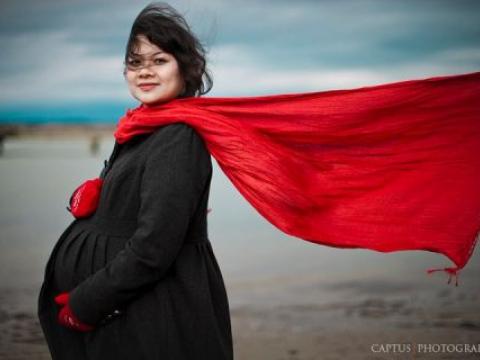With or without room service

Credit: (c) 2011, Thien Lai, Captus Photography
“Personal room service” and “gourmet menus”. “Private rooms” and “mahogany hardwood floors.”
These descriptions jumped out at me from a fancy invitation I had received several years ago. It wasn’t an advertisement for some exotic holiday resort, or a rewards brochure for some new travel scheme.
It was from the maternity ward at a local hospital.
Ordinarily, this would be a very odd invitation to find in one’s daily mail. I still found it odd at the time even though my husband and I had just recently signed up for a series of pre-natal birthing classes in anticipation of our firstborn’s arrival a few months away.
This was because it made me think about other expectant mothers around the world. Women who didn’t have the aid of a skilled birth attendant, let alone the luxury of personal room service, when their little ones were ready to enter the world.
I thought about my courageous grandmother. She had nearly died while giving birth to my mother in the rural midlands of Vietnam. She had only been 17 years old, and was all alone because my grandfather was away trying to find work to support his family. In the end, both she and my newborn mother survived thanks to a young man who heard my grandmother’s cries as he was passing nearby. He was able to find a local midwife from a neighbouring village who had made it just in time.
According to the United States Agency for International Development (USAID), the most dangerous time for an expectant mother is: during labour, birth, and the 24 hours following birth. A fact that not many of us - who live in more privileged countries, might realise.
This reality is something that I will never forget, or take for granted again, following my own personal birthing experience - which became a first-time mother’s nightmare.
'My own personal birthing experience - became a first-time mother’s nightmare'.
It eventually took: nearly 50 hours of labour, four maternity nurses, two obstetrician-gynaecologists, two surgeons, and an anaesthesiologist - to help bring my son into the world by caesarean section. All because my son had decided to turn his head the wrong way up and ended up becoming obstructed in the birth canal.
Thinking back on that harrowing ordeal, I often think of my grandmother. I also think about the fact that if I had had to give birth decades ago, all alone in the middle of nowhere in Vietnam’s rural midlands, I probably would not have survived. And my baby would not have survived.
So, in case you were wondering, I did choose that hospital in the end with all its fancy options. To me, however, they were only fringe benefits (albeit, very lovely ones) compared to the luxury of having that armada of maternal health specialists present to make sure my son and I were safe.
It is also what motivates me to do what I can to help other mothers around the world have the same opportunity to access skilled health care, and clean and safe birthing facilities before, during and after their own pregnancies.
With or without room service.
Cat-Dan Lai-Smith is the global assignment editor for World Vision International’s Field Communications Team. Previous to this, she worked as an advocacy communications specialist to help others gain awareness about World Vision’s advocacy work such as the Child Health Now campaign. She and her husband and their now two year-old son, Liran, are based in the UK.